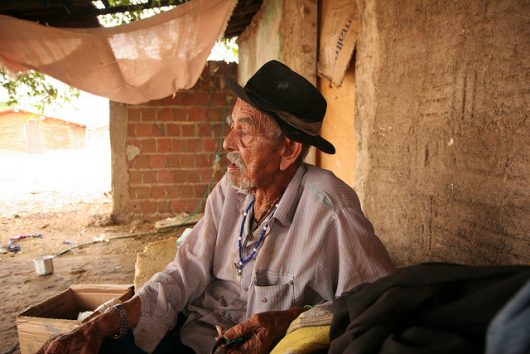RIO DE JANEIRO, BRAZIL – There will be two countries called Brazil in 2021: one that will smile relieved by the rebound of business sectors and another that will have to eat less and make do if it wants to survive.
Inflation should particularly impact this second group, which will no longer count on the support of emergency aid and will not benefit from the generation of jobs in sufficient number.

Moreover, due to the delay in the vaccination process and the lack of prospects to immunize the entire population, the coronavirus will continue to kill poor workers, who do not wear a black-tie, nor work in a home office.
A Datafolha survey, released on Monday, December 28th, points out that 72% of Brazilians expect inflation to increase even more next year. This year it punished the poor harder – for them, food has greater weight on the composition of the price increase index. Rice is proof of this.
As registered Eduardo Cucolo, on Folha de S.Paulo, IPEA (Applied Economic Research Institute) data shows that families with a monthly income lower than R$1.650/month had 5.8% accumulated inflation in 12 months. Among families with an income higher than R$16.510 the indicator stands at 2.69%.
And where will the population find the extra money to pay this difference?
More than 65 million casual workers and unemployed who were unable to work because of the pandemic made do in 2020 with the emergency aid payments. They should thank the National Congress, which tripled the amount of the benefit, given that the Bolsonaro administration’s original proposal amounted to only R$200 per month.
The benefit will expire at the end of the year. The recovery of formal jobs has been fast, as expected, prompting the government to celebrate. However, a host of casual workers are emerging from quarantine, seeking employment and not finding it.
The Covid National Household Sample Survey of the IBGE (National Institute of Geography and Statistics), released on Wednesday, December 23rd , showed that 14 million Brazilians looked for work but were unable to find it, a record rate of 14.2%. There are four million more unemployed now than in May.
Even during the many years of left-wing rule, the federal government has never had a program to encourage the generation of quality jobs. It bets, as always, on structural reforms, which do not necessarily translate into reducing unemployment within the time frame that human beings need it. And it insists on the removal or reduction of employee benefits as a means of increasing the number of hired workers, replicating the Labor Reform argument.
With the end of the aid, economists believe that inflation will decrease, because people will buy less food. Government economists believe that with the return of economic growth, the unemployed will be absorbed and casual workers will gradually become formal.
The problem with such calculations is that the timing of spreadsheets is different from people’s timing.
In between, there is a gap, during which millions of Brazilians, with no emergency aid and no job, will find higher prices for food and rent – the IGP-M (General Price Index – Market), which serves as a reference for rent readjustment, increased by about 25%. And life can’t wait.
Still according to Datafolha, 13% consider unemployment the worst problem this year and 8% consider the economic crisis. These items are behind health (27%), with its over 191,000 deaths by Covid-19.
With a federal government that has proved prudent in the process of tackling the virus, and as a consequence, vaccination, it is difficult to remove health from this level in 2021. But dissatisfaction with unemployment is expected to grow.
Bolsonaro did not favour quarantines, because he knew that a high unemployment rate could undermine his chances for reelection in 2022.
Rising inflation and unemployment and unchecked Covid could create a political bomb that could explode at some point next year, principally in the hands of the most vulnerable, who guaranteed the President a surge in popularity in the pandemic because of the emergency aid.
The question is whether this group will remain grateful to him for their being able to eat properly for a few months, complete an annex to their house, or buy a dream TV using the aid money; or whether everything that seems solid will fall apart as the perception grows that the government’s plans to reduce unemployment are as ineffective as its plans to reduce Covid.
Source: El Pais

